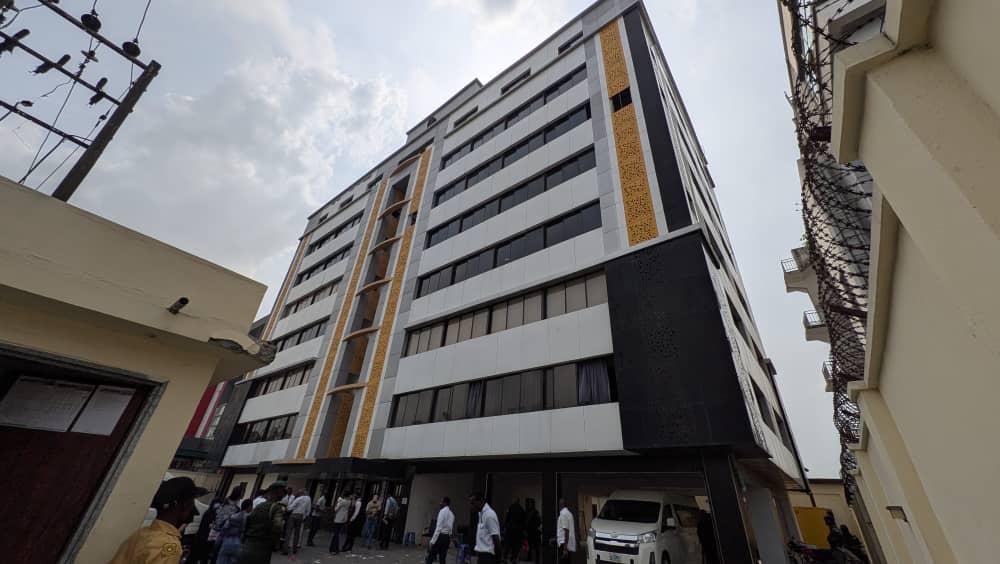193 Foreign Nationals, Including Chinese, Arabs, and Filipinos, Arrested in Landmark Operation
The Economic and Financial Crimes Commission (EFCC), led by Executive Chairman Ola Olukoyede, has made a significant breakthrough in its fight against cybercrime, arresting 792 suspects involved in cryptocurrency investment fraud and romance scams. The arrests were made on Tuesday, December 10, 2024, following a surprise operation at the Big Leaf Building, a seven-storey edifice located at No. 7, Oyin Jolayemi Street, Victoria Island, Lagos.
The operation was based on credible intelligence gathered by the EFCC, leading to the arrest of 148 Chinese nationals, 40 Filipinos, two Kharzartans, one Pakistani, and one Indonesian, along with several Nigerian accomplices.
In a press briefing on Monday, December 16, 2024, at the Lagos Zonal Directorate, Olukoyede, represented by the EFCC’s Director of Public Affairs, Commander Wilson Uwujaren, revealed that the syndicate had been operating out of the building, which was designed to resemble a corporate headquarters. There, foreign nationals were training their Nigerian counterparts to execute romance and investment scams, using fraudulent identities to target mostly Western victims.
Modus Operandi of the Fraud Syndicate
According to EFCC investigations, the building contained high-end desktop computers on every floor. In fact, on the fifth floor alone, officers recovered over 500 SIM cards from local telecom providers, all purchased for criminal purposes. The foreign perpetrators recruited Nigerians to prospect for victims online through phishing, primarily targeting individuals in the U.S., Canada, Mexico, and various European countries.
The Nigerian accomplices were given computers and mobile devices, with training on creating fake profiles to initiate conversations with victims on platforms like WhatsApp, Instagram, and Telegram. The fraudsters often posed as foreign women, engaging in romantic chats and fraudulent business investment discussions to lure victims into investing in a fake cryptocurrency platform, yooto.com.
For those showing interest, activation fees for accounts on the platform started at $35. The Nigerians were also trained to handle the communication lines and were equipped with WhatsApp accounts linked to foreign numbers, typically from Germany and Italy. Once trust was gained, the foreign operatives would take over the fraud, leaving the Nigerian accomplices in the dark about the ongoing transactions.
Recruitment and Payment Process
EFCC Chair Olukoyede revealed that the recruits, mostly young Nigerians, were selected based on their proficiency in computer use, particularly typing skills. After a two-week induction on how to run romance scams and manipulate victims into cryptocurrency investments, the Nigerians were expected to follow the directives of the foreign fraudsters. However, the Nigerian recruits did not know the actual owners of the scam operation, as they were not given formal appointments or paid through corporate accounts. Instead, they were paid in cash or via personal accounts.
International and Local Cooperation
The EFCC is now collaborating with its international partners to further investigate the scope of the scam and identify any links to larger, organized criminal networks. Olukoyede emphasized that while Nigeria has unfortunately been associated with a reputation for fraud, the true culprits in this case are foreign nationals who are exploiting Nigeria’s image to disguise their criminal activities.
“This operation shows that criminals, regardless of their origin, will not find refuge in Nigeria,” Olukoyede stated. “We will continue to target such fraudulent networks operating in our country.”
The acting Zonal Director of the Lagos Directorate, Michael Wetkas, also called for enhanced collaboration with the media in the fight against corruption and financial crimes.
Items Recovered and Next Steps
During the operation, the EFCC recovered numerous items, including desktop computers, mobile phones, laptops, and cars from the suspects. The arrested individuals will face charges in court once investigations are complete.
The EFCC’s raid on the syndicate underscores the Commission’s ongoing efforts to tackle cybercrime and financial fraud, both locally and internationally.







